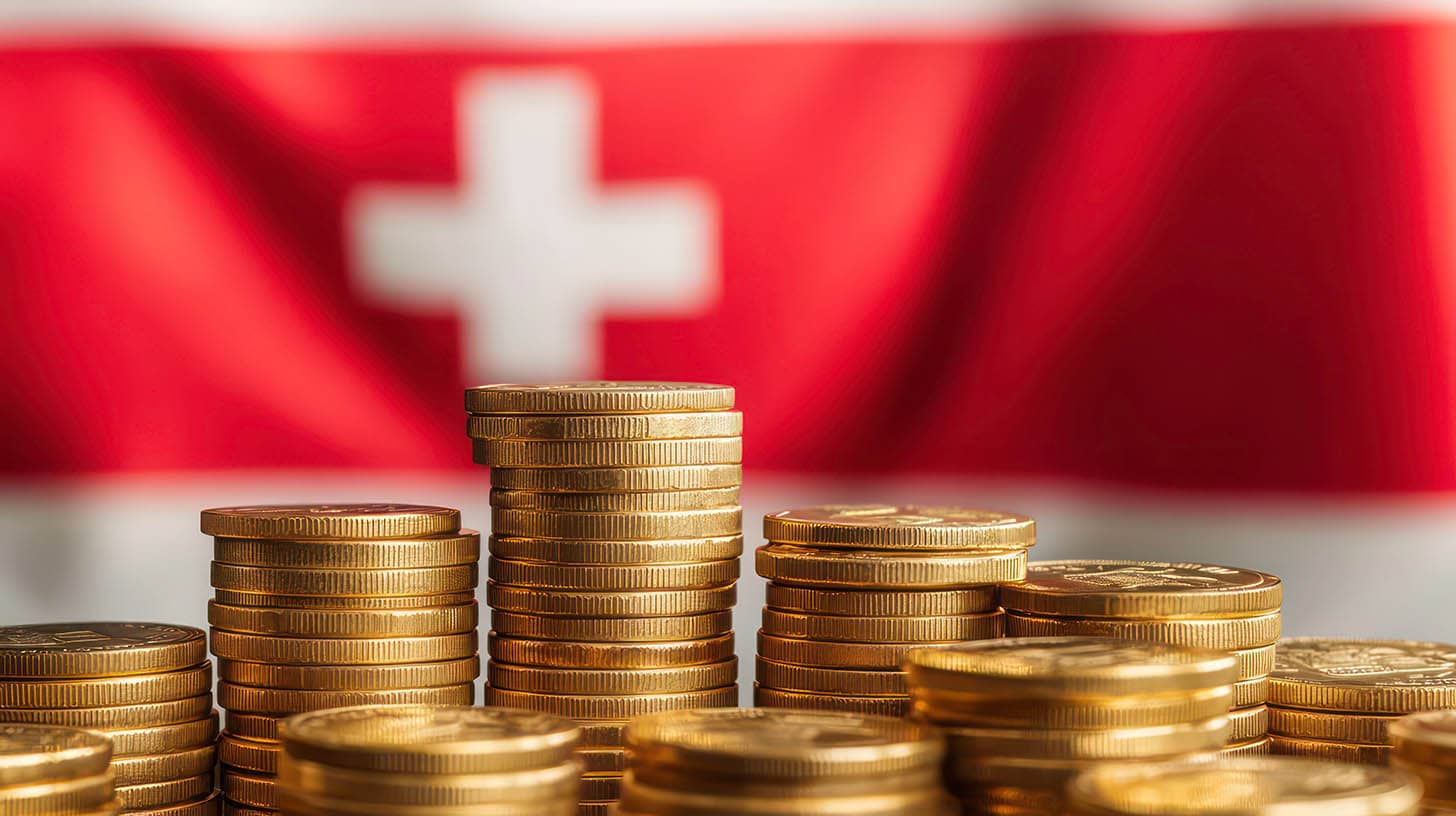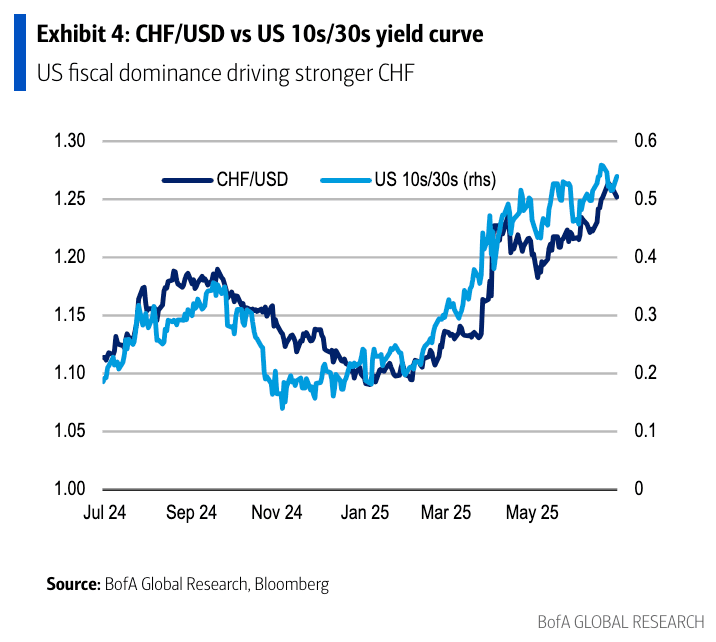Swiss Franc is the FX Equivalent of Gold, Suggests New Research
- Written by: Gary Howes
-

Image © Adobe Images
The Swiss Franc is rising as fears over mounting fiscal debts grow.
The Swiss Franc continues to strengthen regardless of what the Swiss National Bank (SNB) says or does, and regardless of what is happening in global stock markets.
The franc is a traditional safe-haven currency, which means it shouldn't necessarily be as strong as it is currently, given that global equity markets are near record highs.
However, 2025 is interesting in that there is a new risk that is emerging: the burgeoning debt piles in the world's major economies.
It is here that the Franc is seen as a currency equivalent of gold; a liquid, neutral hedge against long-term fiscal uncertainty.
"In reality, CHF and Gold are perhaps the only two liquid non-USD assets to hedge against uncertainty with JPY having lost that status some time ago. It is clear to us that the efforts from the SNB to curb CHF strength have and continue to fail. Verbal intervention has not been backed by physical (perhaps constrained by US politics on tariffs), CHF as done nothing but rally since the move to ZIRP," says Kamal Sharma, FX Strategist at Bank of America.

Get More From Your GBP/CHF Transfer
Pound Sterling Live consistently delivers stronger rates than major UK banks. In July, you could have saved up to CHF1719.00 on a £50,000 transfer thanks to our competitive pricing.
🔎 See Howi - Based on average GBP/NZD rate observed in July.
With the U.S. passing the One Big Beautiful Bill Act, which commits trillions of dollars in extra funding to an expanding debt pile, the issue of fiscal sustainability is rapidly growing as a concern for investors.
It's not just relevant to the U.S.: in the UK the OBR confirms on July 08 a rapid change in course is required by the government to bring debt under control, which is unlikely.
Germany has changed its constitutional framework to allow it to borrow more, while there is little appetite for other European countries to contain their spending (France's budget deficit is on course for 10% of GDP).
In a world awash with debt, the risks of defaults grow, leaving investors keen to invest in assets that would offer safety in such an eventuality.
Image courtesy of Bank of America. The chart shows U.S. bond yields are rising, typically in association with rising concerns about the trajectory of debt. The chart also shows a strong correlation between the move and the rise of the franc, suggesting the sa,e debt fears are the primary driving force.
But, higher debt also implies greater spending, which means inflation risks are pointed decidedly higher.
This leaves investors asking what assets can protect them against both default risks and inflation?
Gold is the universally acknowledged asset to consider, but the Swiss Franc is also fulfilling this function.
Going forward, Bank of America's FX strategy team thinks fiscal concerns will be a more pervasive part of market thinking.
All the while, the SNB and other authorities will be tearing their hair out, as a too-strong franc can be a headwind for the domestic economy.
"It is difficult for the SNB to use traditional policy levers to wrestle control from markets. For now, that means stronger for longer CHF, particularly versus USD and JPY," says Sharma.
Above: The GBP/CHF is on a seemingly unstoppable path.
The gains by the Franc come despite the SNB cutting interest rates to zero (Zero Interest Rate Policy, or ZIRP), which is typically a formidable headwind for a currency in a world where interest rates maintained at other central banks are much higher.
"The Swiss Franc (CHF) keeps strengthening - even as the SNB has returned to ZIRP and volatility has declined. This goes against the conventional wisdom and argues something else is going on," says Swiss Re's Head Macro Strategy, Patrick Saner.
Saner says that if the Franc is acting as the G10 currency version of gold, its strength may well be here to stay.
"Which also makes it much harder for SNB to effectively manage it, since SNB is already at zero rates and a more FX-centric monetary policy, even if needed, might simply agitate the U.S. more," he explains.

